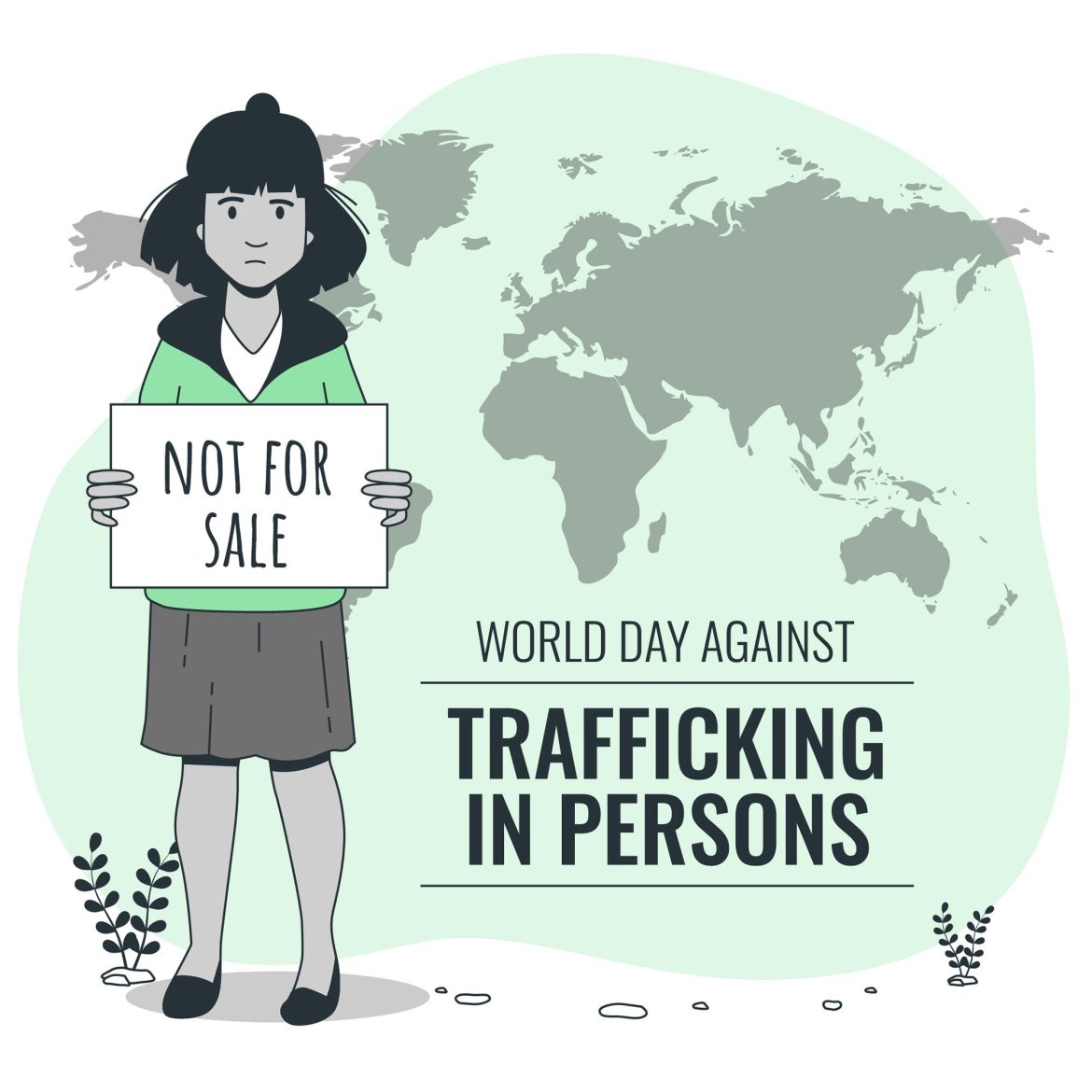Human trafficking is an international crime that exploits people primarily for forced labour and sexual exploitation. Those most affected by trafficking are women and children, according to Save the Children, a global leader in child health, education, and protection. Children account for 27% of all human trafficking victims worldwide. Two out of every three child victims are girls.
Katrina Sriranpong is a Thai Vancouver-based former lawyer and philanthropist. She is an advocate for the rights of children in war-torn countries and supports programs aimed at rehabilitation, education and developmental aid for children. Sriranpong also advocates against human trafficking and supports organizations that promote awareness and change on the issue.
Sriranpong explains, “My husband and I support an organization called Operation Underground Railroad, O.U.R. In 2013, O.U.R. was established to fight human trafficking, especially of children for sexual exploitation. The founder assembled a team of people from the CIA, DHS, and state and local law enforcement, many of whom walked away from pensions and job security to work for his non-profit organization.”
O.U.R. operates in 40 countries, including Thailand and the U.S.A. Since the group is privately operated, they are able to quickly and effectively respond to foreign government requests and institute investigative measures to develop intelligence and assist in rescue efforts. The O.U.R. Ops Team is composed of highly experienced and extensively trained current and former law enforcement personnel. The goal of O.U.R. is to develop relationships with foreign governments and their law enforcement agencies responsible for combating human trafficking and child sexual exploitation.
Katrina Sriranpong explains that prepubescent children are at the greatest risk to be depicted in child sexual abuse material online. Unfortunately, child sex trafficking and online child exploitation are the types of crimes that you proactively have to search for in the deepest, darkest corners, which means more time and resources. Donations are crucial to O.U.R. as more funds raised means more children rescued, more recoveries planned, and more technology installation and training. In March 2022, O.U.R. opened its official Thailand office. The purpose of the office is to support local law enforcement in stopping human trafficking and child sexual exploitation.
Child sex trafficking wouldn’t exist without a market. The founder of O.U.R. argues that Americans are the ultimate clients because they tend to have money so that traffickers can charge more. A child sex slave generally brings three or four times what a trafficked adult would bring in.
Katrina Sriranpong explained her personal interest in advocating against human trafficking, “I was born and raised in Vancouver, Canada. However, my family is from Thailand. I spent the early part of my life in a poor rural rice village in Thailand. The issue of human trafficking, especially of children, hits close to home for me. Unfortunately, Thailand is known for the sexual exploitation of children and its prevalence of human trafficking. It is common for teachers in rural areas of Thailand to warn young students ‘don’t talk to strangers or else you will be sold and never see your parents again.’ Human traffickers in Thailand predominantly target children from poor, rural backgrounds.”
Sriranpong further explains, “As a former immigration and refugee lawyer, some of my work involves assisting victims of human trafficking. Being a mother now, I can’t imagine my sons being kidnapped and sold into sexual slavery at the age of 2 or 3. In Thailand, Children are even trafficked from neighbouring countries for underage labour and sexual exploitation. Corrupt Thai authorities are as much part of the problem as they are part of the solution. Unfortunately, child trafficking is not only widespread in Thailand, but many other countries. Most people look away because the reality is so sick and disturbing, but doing nothing is the greatest act of cowardice we can commit. I feel we all have a responsibility to raise awareness, support anti-human trafficking initiatives, and educate people on this ’invisible crime.’”
Sima Bahous is the executive director of U.N. Women, the United Nations organization delivering programs and policies that uphold women’s human rights. Bahous explained, “Approximately a quarter of the world’s population, 2 billion people, are currently living in conflict areas, in highly unsettled conditions that create vulnerabilities and risks of trafficking for women and girls.”
U.N. Women’s recent research has revealed that human trafficking was present in 90% of the 171 wars and conflicts that occurred between 1989 and 2016. The COVID-19 pandemic and climate change have exacerbated the problem, along with economic insecurity, displacement, and lack of access to safe migration pathways. Victims are exposed to multiple forms of gender-based violence.
Katrina Sriranpong reflects on her work as a lawyer and explained, “I specialized in litigation in the Federal Court of Canada. Some of my work involved assisting victims of human trafficking obtain permanent resident status and eventually Canadian citizenship. As such, I volunteer with O.U.R. to assist victims in the courtroom, specifically for matters involving immigration and obtaining permanent resident status in Canada.”
Sriranpong further explains, “From my experience as an immigration lawyer, I have found that many victims of human trafficking do not come forward due to fear of their own lives or they may not understand that they are actually victims of human trafficking. Victims with language barriers may be afraid to report themselves for fear of being detained and deported as they are completely unaware of their rights or have been misinformed about their rights in Canada. Working with refugees over the years, I have learned that whenever there is a significant displacement of people, human traffickers often take advantage of vulnerable adults and children.”
In February 2022, Russia invaded Ukraine and attacked the government, military and innocent civilians in Ukraine. More than half of Ukraine’s innocent children were displaced from their homes after just one month of war. According to UNICEF, 4.3 million children were displaced. As well, 1.8 million children were forced to flee their home and cross into neighbouring countries as refugees. Children fleeing the country are at a greater risk of human trafficking and exploitation. Human traffickers often take advantage of large scale population movements and the war in Ukraine is creating conditions that may cause a spike in human trafficking. For example, more than 500 children were unaccompanied when crossing from Ukraine into Romania from February 2022 to March 2022, and the true number is likely much higher. As such, the situation in Ukraine is by far one of the biggest child protection crises to happen in recent years.
If you are interested in learning more about human trafficking and how you can help, please visit Operation Underground Railroad’s website.
Image by storyset on Freepik




